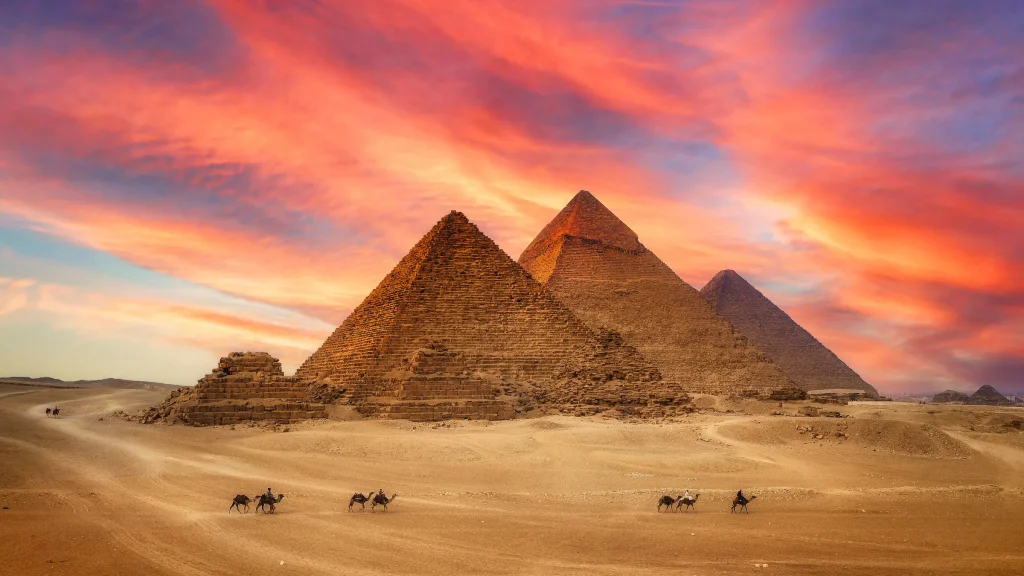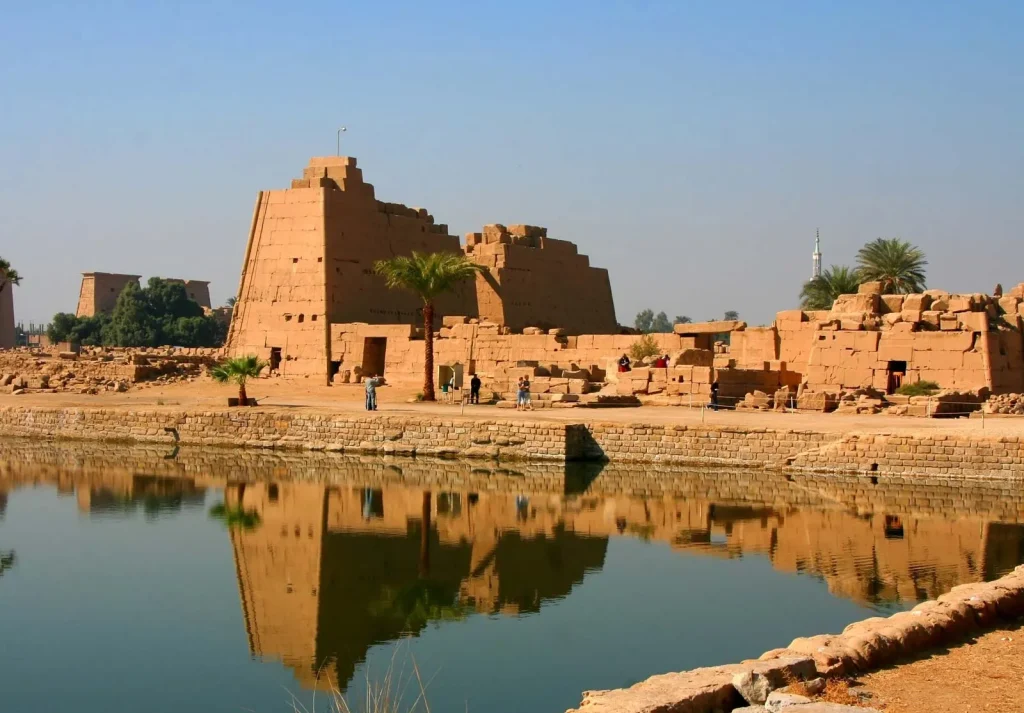Egypt, a mesmerizing destination located in the northeastern part of Africa, is renowned for its captivating history, awe-inspiring monuments, and intriguing culture. This guide aims to provide an exhaustive overview of Egypt, its geographical features, key attractions, and the unique cultural and historical heritage it offers.
Geographical Overview
Egypt is primarily divided into four physiographic regions: the Nile valley and delta, the Western Desert, the Eastern Desert, and the Sinai Peninsula. The Nile River, flowing across the country, is a significant geographical feature that has played a crucial role in shaping Egypt’s civilization.
The Nile Valley and Delta
The Nile River valley and delta are the heartland of Egypt, serving as the backbone of the country’s agricultural productivity. The Nile valley lies between Cairo and Aswan, varying from 5 to 10 miles in width. The Nile delta covers an area of approximately 9,650 square miles and is about 100 miles long from Cairo to the Mediterranean. The fertile soil in these regions supports the cultivation of multiple crops annually.
The Deserts
Egypt’s Western and Eastern Deserts, together with the Sinai Peninsula, form the rest of the country’s landscape. The Western Desert, an extension of the Libyan Desert, is barren and devoid of wadis (dry river beds), while the Eastern Desert is dissected by wadis and fringed by rugged mountains in the east. The Sinai Desert is characterized by isolated hills and dry river beds.
Key Attractions
Egypt’s rich history and cultural heritage are reflected in its numerous attractions, ranging from ancient temples and monuments to stunning natural landscapes.
The Pyramids of Giza
The Pyramids of Giza, the last remaining wonder of the ancient world, are a testament to Egypt’s grandeur during the Pharaohs’ era. These pyramids, impeccably geometric and colossal, have intrigued visitors for centuries.
The Valley of the Kings
The Valley of the Kings, located on the west bank of Luxor, was the burial site of royalty during the New Kingdom period (1550–1069 BC). It is home to some of Egypt’s most elaborate and well-preserved tombs, offering a fascinating insight into ancient Egyptian burial practices.
The Temples
Egypt is home to several remarkable temples, each with its unique architectural style and historical significance. Some of the must-visit ones include the Temple of Horus, the Temple of Seti I, the Temple of Isis, and the Great Temple of Ramses II. These temples are a testament to the architectural prowess and religious beliefs of the ancient Egyptians.
Natural Attractions
Egypt also boasts stunning natural attractions. The White Desert National Park, famous for its surreal, alien-like landscape, offers a stark contrast to Egypt’s historical sites. Similarly, the Nile River itself offers opportunities for scenic cruises, allowing visitors to appreciate Egypt’s beauty from a different perspective.
Cultural Heritage
Egypt’s culture is a blend of its long history, diverse ethnicities, and the influence of various ruling powers. The locals are known for their storytelling prowess, and their love for their country’s past is evident in every aspect of their lives.
Egypt’s cultural milieu has remained predominantly Arab since the Muslim conquest, despite the cosmopolitan nature of its urban centers. The country has been part of the broader Islamic world, and its cultural and intellectual contributions have been significant.
Historical Overview
Egypt’s history is marked by periods of foreign rule interspersed with native dynasties. The Pharaonic era, one of the earliest urban and literate societies, thrived for roughly 3,000 years. After Alexander the Great’s conquest in 323 BCE, Egypt became an integral part of the Hellenistic world.
The country was then conquered by the Romans in 30 BCE and became part of the Roman Republic, Empire, and later the Byzantine Empire. In 639-642 CE, Egypt was conquered by Arab Muslim armies, marking a significant shift in its history.
Modern Egypt
Modern Egypt has witnessed significant political changes, with the country evolving from a monarchy to a socialist republic. The Suez Crisis of 1956, the Arab-Israeli wars, and the recent political unrest have shaped Egypt’s contemporary history. Despite these upheavals, Egypt remains a fascinating destination, attracting millions of tourists every year with its rich history and cultural heritage.
Conclusion
Egypt is a country that captivates with its rich tapestry of history, culture, and natural beauty. Whether you’re an archaeology enthusiast, a history buff, or simply a curious traveler, Egypt promises an unforgettable journey through time and across landscapes. So, come and explore the land of Pharaohs, Pyramids, and the mighty Nile!


